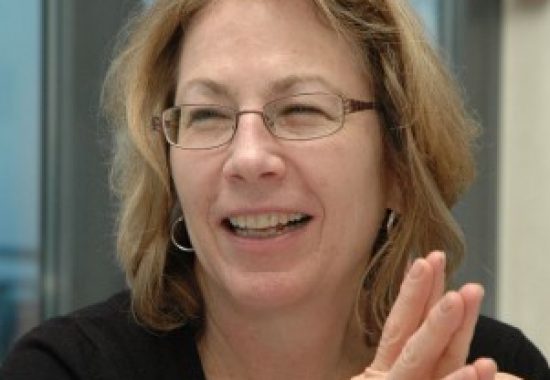Areas of interest within the Cognitive Neuroscience and Cognitive Rehabilitation focus area at Moss Rehabilitation Research Institute (MRRI) include investigating the neural underpinnings of language processing and expression, as well as understanding how language can be impacted by brain injury or disease. MRRI is dedicated to engaging with other leaders in the field to exchange ideas and continue important discussions in these research areas. Over the past three months, MRRI hosted a series of virtual presentations from leading experts in our Visiting Scholars Language Mini-Series. Each presentation is available on our YouTube channel for anyone interested in learning more.

Professor in the Departments of Cognitive Science and Neuroscience at Johns Hopkins University
View Dr. Rapp’s presentation titled “From voxels to hemispheres: Understanding language recovery at multiple network scales” recorded on January 27, 2021.
Network science provides a promising approach to understanding post-stroke recovery in aphasia. One challenge, however, is the fact that brain networks occur at multiple scales, from micro to macro. In terms of the functional networks that can be evaluated with fMRI, these may range from networks of clustered voxels, functional connectivity within processing components, connectivity between components as well as inter-hemispheric connectivity. We don’t yet know if any or if all of these levels will be relevant for understanding the brain changes that support recovery of function in post-stroke language disorders. In this talk, Dr. Rapp discusses data analyses and findings that identify changes that occur at these multiple levels and which are linked with behavioral changes resulting from language treatment. She proposes that these findings provide a basis for beginning to understand and ask motivated questions about the complex, multi-level network processes involved in recovery of function in the damaged brain.

Associate Professor of Neurology and Rehabilitation Medicine at Georgetown University Medical Center
View Dr. Turkeltaub’s presentation titled “Inner Speech in Aphasia” recorded on February 24, 2021.
Many people with aphasia report that they can say words in their heads that they can’t say aloud. Understanding more about these subjective reports could have implications for our understanding of the nature of inner speech and self-awareness and could have clinical implications for how we diagnose and treat anomia. Dr. Turkeltaub discusses a series of studies assessing how these subjective reports relate to objective measures of word retrieval and production. He also shares recent related work on overall awareness of anomia and error awareness in aphasia.

Professor in the Department of Psychology, Department of Kinesiology, Program in Neuroscience, and the Beckman Institute for Advanced Science and Technology at the University of Illinois.
View Dr. Federmeier’s presentation titled “Finding meaning in time: What electrophysiology reveals about how the brain makes sense of the world” recorded on March 24, 2021.
A lynchpin of human cognition is the ability to rapidly and effectively link incoming sensory information to knowledge stored in long-term memory. Work in Dr. Federmeier’s laboratory, focusing on the cognitive and neural mechanisms that make this possible, has revealed the critical import of time and context for meaning processing. Comprehension is sub served by a set of core mechanisms that use time to create links between sensory stimuli and stored semantic knowledge, affording the continuous infusion of meaning into human perception. In addition, compelling evidence shows that language processing can be facilitated by active, context-based expectations for semantic, lexical, and sensory features of likely upcoming words. In this presentation, Dr. Federmeier reviews the neural and cognitive bases for expectation-based processing. She describes emerging evidence showing that multiple language comprehension mechanisms are implemented in parallel and that the brain dynamically adapts its use of these mechanisms, both over the long-term in response to changing neural and cognitive abilities with age, and over the short-term in response to situational and task demands. Collectively, these findings reveal the complex relations among sensory processing, attention, memory, and control systems that allow people to rapidly and fluidly understand one another across the lifespan.


2 comment on “MRRI Virtually Hosts Three Visiting Scholars in Recent Language Mini-Series”